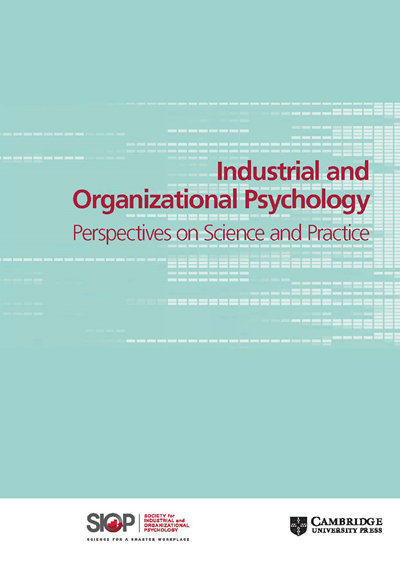I-O心理学中的反思与反身性:一个研究生的视角
IF 4.3
3区 心理学
Q1 PSYCHOLOGY, APPLIED
Industrial and Organizational Psychology-Perspectives on Science and Practice
Pub Date : 2023-03-01
DOI:10.1017/iop.2022.103
引用次数: 1
摘要
在焦点文章中,Hyland(2023)写道,“我希望这篇文章能够引发一场关于反思和反思性在我们的领域中所扮演的角色的集体对话”(第5-6页)。作为目前io心理学博士课程的三名研究生,我们希望将这种关于反思和反身性的讨论扩展为一种行动呼吁,呼吁我们自己和我们的io研究生同学在产生这种必要的变化中发挥积极作用。根据SIOP的收入和就业报告(2020年),45%的I-O毕业生在学术界从事职业,而56%的I-O毕业生从事应用型职业。因此,研究生院是培养学术学者和应用学者之间关系的理想时期,是整合所有I-O学者都应该具备的理想反思和反身性技能的理想时期,以便最好地解决I-O心理学的认同危机。在这篇评论中,我们强调了个人的、认识论的和学科的问题,海兰要求I-O心理学家从研究生的角度来考虑,这样反思和反身性就发生在I-O心理学家职业生涯开始的地方。本文章由计算机程序翻译,如有差异,请以英文原文为准。
Reflection and reflexivity in I-O psychology: A graduate student’s perspective
Introduction In the focal article, Hyland (2023) writes, “my hope is that this article will spark a collective conversation about the role that reflection and reflexivity can play in our field” (pp. 5–6). As three current graduate students in an I-O psychology PhD program, we want to extend this discussion of reflection and reflexivity into a call to action for ourselves and our fellow I-O graduate students to play an active role in generating this necessary change. According to SIOP’s Income and Employment report (2020), 45% of I-O graduates pursue a career in academia, whereas 56% of I-O graduates pursue an applied career. Therefore, graduate school is the ideal time to foster the relationship between academic and applied scholars, and integrate the ideal reflection and reflexivity skills that all I-O scholars should possess in order to best address the identity crisis of I-O Psychology. In this commentary, we highlight the personal, epistemological, and disciplinary questions Hyland asks I-O psychologists to consider from the lens of a graduate student so that reflection and reflexivity occurs from the beginning of where an I-O psychologist’s career begins.
求助全文
通过发布文献求助,成功后即可免费获取论文全文。
去求助
来源期刊

Industrial and Organizational Psychology-Perspectives on Science and Practice
PSYCHOLOGY, APPLIED-
CiteScore
7.70
自引率
10.10%
发文量
85
期刊介绍:
Industrial and Organizational Psychology-Perspectives on Science and Practice is a peer-reviewed academic journal published on behalf of the Society for Industrial and Organizational Psychology. The journal focuses on interactive exchanges on topics of importance to the science and practice of the field. It features articles that present new ideas or different takes on existing ideas, stimulating dialogue about important issues in the field. Additionally, the journal is indexed and abstracted in Clarivate Analytics SSCI, Clarivate Analytics Web of Science, European Reference Index for the Humanities and Social Sciences (ERIH PLUS), ProQuest, PsycINFO, and Scopus.
 求助内容:
求助内容: 应助结果提醒方式:
应助结果提醒方式:


